Penthouse

Brief Synopsis
Cast & Crew
W. S. Van Dyke
Warner Baxter
Myrna Loy
Charles Butterworth
Mae Clarke
Phillips Holmes
Film Details
Technical Specs

Synopsis
As a result of Jackson Durant's brilliant defense, Tony Gazotti, a notorious racketeer on trial for murder, is acquitted and saved from the electric chair. Although Tony is deeply grateful for Jackson's help, Jackson's law partners are less than thrilled with his choice of clients and drop him from their firm. Jackson's fiancée, socialite Sue Leonard, also loathes his disreputable clients and breaks their engagement. Then, while a dejected Jackson drinks himself into a stupor, Sue accepts the proposal of Tom Siddall, a longtime admirer. As a condition of the engagement, Tom agrees to end his relationship Mimi Montagne, a former moll. When Tom tells the impetuous Mimi that their romance is over, she explodes with anger and threats. Mimi then contacts racketeer Jim Crelliman, her previous lover, and announces her breakup with Tom. Crelliman expresses interest in a reunion and invites Mimi to a party at his apartment. There Crelliman informs Mimi that he has asked Tom to the party so that she can tell him face-to-face that she is through with him. When Tom arrives at Crelliman's, Mimi takes him out on the balcony, and a short time later, a gunshot is heard. Mimi is found dead on the balcony, and Tom, who is holding the gun, is arrested for her murder. The next morning, Sue comes to Jackson and, convinced of Tom's innocence, begs him to take the case. Although at first outraged, Jackson agrees to take on Tom's defense after he receives an anonymous telephone call warning him to stay off the case. To help in his investigation, Jackson asks Tony for inside information regarding Crelliman, his racketeering rival. In turn, Tony introduces Jackson to Gertie Waxted, Mimi's beautiful roommate, who agrees to stay with Jackson until he has exhausted her memory regarding Crelliman's activities. After a night of fruitless questioning, Jackson receives a ballistics report from a friend at police headquarters and concludes that the fatal shot was fired from above. Gertie then reveals that her penthouse overlooks Crelliman's balcony, and that Crelliman owns the apartment building. Armed with this information, Jackson telephones Tony and is given a set of master keys with which to break into Crelliman's building. While he is snooping in Gertie's apartment, Crelliman shows up and offers him a bribe to drop the case. When Jackson refuses the offer, Crelliman orders his men to ambush the lawyer in the building. Aided by a sympathetic elevator operator, Jackson escapes the building, after determining the apartment in which Mimi's killer was living. Later, Tony tells Jackson that the apartment belongs to Murtoch, Crelliman's "finger man," and Jackson heads for Murtoch's favorite speakeasy. When he arrives, he is stunned to see Murtoch drinking with Gertie and, unaware that Tony tipped off Gertie about Murtoch, assumes that she is betraying him. Jackson angrily confronts Gertie with his suspicions and learns that she was trying to stall Murtoch in order to protect him. Chagrined, Jackson apologizes to Gertie, confesses his love and proposes. Before Gertie can accept, however, Jackson hears from Tony that Crelliman is about to kill Murtoch. Seized with an idea, Jackson asks Gertie to go to Crelliman's apartment and somehow maneuver him onto his balcony, while he and the police confront Murtoch. Through intimidation, Jackson and the police frighten Murtoch to the point of confession, but Crelliman, who is wise to Gertie's manipulations, orders her execution. Before Crelliman can act on his threats, however, Tony bursts in and, after killing all of his rival's men, kills Crelliman as well. Fatally shot in the foray, Tony dies in Jackson's arms. While a freed Tom reunites with Sue, Jackson proposes again to Gertie and arranges for a long honeymoon in Europe.

Director
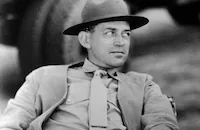
W. S. Van Dyke
Cast

Warner Baxter

Myrna Loy

Charles Butterworth

Mae Clarke

Phillips Holmes

C. Henry Gordon
Martha Sleeper
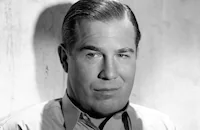
Nat Pendleton
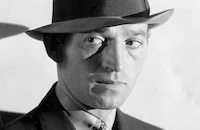
George E. Stone
Robert E. O'connor
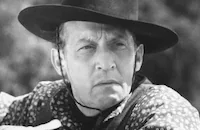
Raymond Hatton
Arthur Belasco
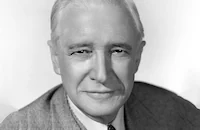
Samuel S. Hinds
Theresa Harris
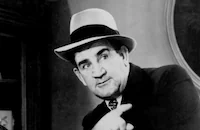
Tom Kennedy
Crew
Adrian
Lucien Andriot
Dr. William Axt
Frances Goodrich
Albert Hackett
Robert J. Kern
Harold Rosson
Douglas Shearer
Hunt Stromberg
Alexander Toluboff
Edwin B. Willis

Videos
Movie Clip




Trailer
Film Details
Technical Specs

Articles
Penthouse
Penthouse is one of those Depression-era pieces of fluff that deflates the rich while glorifying salt-of-the-earth types. In other words, it was exactly what audiences wanted to see at the time. Warner Baxter stars as Jackson Durant, a wealthy lawyer who gets a kick out of defending gangsters and lowlifes. Unfortunately, Jackson's snooty fiancée (Mae Clarke), isn't particularly taken with his clientele, so she leaves him for a man of a higher social standing (Phillip Holmes). When she winds up murdered, Jackson pursues the killer, and meets Gertie Waxted (Loy), a no-nonsense call girl who's truer to Jackson than the murdered woman ever was. Guess which two characters fall in love?
Penthouse is a spiffy, thoroughly enjoyable time-killer. More importantly, though, it served as the first teaming of Loy and director W.S. Van Dyke, who would mastermind the majority of her Thin Man pictures. In fact, Van Dyke was as responsible as anybody for getting Loy out of character actress hell. After directing Penthouse, Van Dyke personally approached Louis B. Mayer and stated that Loy would become one of the biggest stars in Hollywood if the studio would just keep giving her 'American girl' roles.
According to Loy, who was always nonplussed by her stardom and unlikely to invent such a story, Van Dyke passed through the MGM commissary shouting, "This girl's going to be a big star! Next year she'll be a star!" Shortly thereafter, Mayer assigned Van Dyke the task of directing a boxing picture starring heavyweight champion Max Baer. Van Dyke immediately recruited Loy to play the female lead (in The Prizefighter and the Lady, 1933), and they were officially a team.
Then, less than a year later, Van Dyke (who made a little over three films a year for 25 years) cast Loy opposite Clark Gable in a gangster picture called Manhattan Melodrama (1934). It says a lot about Loy's then-growing popularity that gangster John Dillinger, who said Myrna was his favorite actress, attended a Chicago screening of Manhattan Melodrama, even though he was the most wanted man in America. While exiting the theater, Dillinger was shot dead by the F.B.I. (No word on whether he gave the picture a thumbs-up.)
The first Thin Man movie followed in short order, and Loy became "a big star." Her effortless grace as a light comedienne is a testament not only to her talents, but to Van Dyke's ability to see what so many other people had missed.
Producer: Hunt Stromberg
Director: W.S. Van Dyke
Screenplay: Frances Goodrich, Albert Hackett, Arthur Somers Roche (story)
Cinematography: Lucien Andriot, Harold Rosson
Film Editing: Robert Kern
Art Direction: Alexander Toluboff
Music: William Axt
Cast: Warner Baxter (Jackson Durant), Myrna Loy (Gertie Waxted), Charles Butterworth (Layton), Mae Clarke (Mimi Montagne), Phillips Holmes (Tom Siddall), C. Henry Gordon (Jim Crelliman).
BW-89m.
by Paul Tatara

Penthouse
Quotes
Trivia
Notes
Arthur Somer Roche's novel also appeared as a serial in Hearst's International-Cosmopolitan (publication date undetermined). The working title of the film was Penthouse Legend. According to an August 1933 Hollywood Reporter news item, Ayn Rand worked on the film's screenplay. The exact nature of her contribution, if any, has not been determined. Although Hollywood Reporter announced that Lucien Hubbard was to be the associate producer on the production, Hunt Stromberg is credited on the screen in that capacity. M-G-M borrowed Warner Baxter from Fox for the production. A mid-July 1933 Film Daily news item announced Madge Evans as a co-star, but she did not appear in the film. In 1939, M-G-M remade Roche's story as Society Lawyer .















